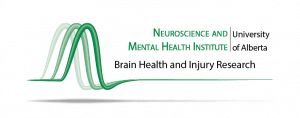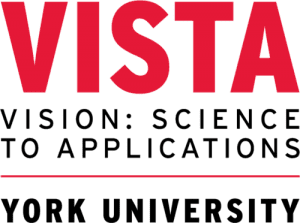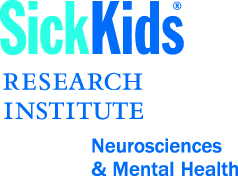This is a preliminary program, subject to change and updates.
Wednesday, May 11
CAN public lectures:
Starting at 5 PM
Presenters:
- Isabelle Aubert, Sunnybrook Research Institute
- Kullervo Hynynen, Sunnybrook Research Institute
- Nir Lipsman, Sunnybrook Research Institute
Virtual event – get your ticket here
Day 1 : Thursday, May 12
In person at the Sheraton Toronto Centre
| 9:00 AM – 4:00 PM |
CAN Satellite symposia
|
| 5:00 – 5:15 PM |
Welcome and Opening Remarks by
Shernaz Bamji, President of the Canadian Association for Neuroscience |
| 5:15 – 6:15 |
Presidential Lecture
Making up your mind: the intimate dependence and remarkable precision of cortical interneurons
Gordon Fishell, Harvard Medical School |
| 6:15 – 8:00 |
Opening Reception |
Day 2: Friday, May 13
In person at the Sheraton Toronto Centre
| 8:30 – 10:15 AM |
Plenary symposium 1
Mitochondrial function and dysfunction in Parkinson’s disease: insights from native and model cells
Chair: Louis-Eric Trudeau, Université de Montréal
Speakers :
- Mechanisms of metabolic dysfunction in synucleinopathies
Scott Ryan, University of Guelph
- Mitochondrial dysfunction in idiopathic Parkinson’s disease, what can patient-derived induced neurons tell us?
Janelle Drouin-Ouellet, Université de Montréal
- Mitochondrial dysfunction in dopamine neurons in Parkinson’s disease: at the interface of cell-autonomous and non-cell autonomous mechanisms
Louis-Eric Trudeau, Université de Montréal
|
| 10:15 – 10:30 |
CIHR-INMHA Update
Sam Weiss |
| 10:30 – 10:45 |
Coffee break
Posters/exhibits |
| 10:45 – 11:45 |
Featured Plenary speaker 1
Decoding Parkinson’s disease
Valina Dawson, Johns Hopkins |
| 11:45 – 12:00 |
Brain Star Award presentation 1
Xuming Yin | University of Ottawa
Delayed motor learning in a 16p11.2 deletion mouse model of autism is rescued by locus coeruleus activation |
| 12:00 – 1:30 |
Advocacy lunch (pre-registration required)
|
| 1:30 – 3:00 |
Parallel symposia
PS1 Novel Sources of neurogenesis in vivo and in response to neurological injury
Chair: Jing Wang | Ottawa Hospital Research Institute
Speakers:
- Direct neuronal reprogramming by temporal identity factors
Michel Cayouette | Montreal Clinical Research Institute
- Recruiting quiescent neural stem cells in the injured spinal cord
Karl Fernandes | University of Sherbrooke
- Direct lineage reprogramming strategies for CNS repair
Maryam Faiz | University of Toronto
- Ischemic injury induces reprogramming and local neural regeneration in the adult brain
Jing Wang | Ottawa Hospital Research Institute
PS2 The amygdala and the response to reward cues
 Sponsored by CERVO Brain Research Centre Sponsored by CERVO Brain Research Centre
Chair: Anna Samaha | Université de Montréal
Speakers:
- Acetylcholine Dynamics in the BLA During Reward Learning
Marina Picciotto | Yale School of Medicine
- Approach behaviours and instrumental pursuit triggered by appetitive cues: role of the basolateral amygdala
Anne-Noel Samaha | Université de Montréal
- Optogenetic excitation of central amygdala amplifies ‘wanting’ but not ‘liking’ for sucrose reward
Shelley Warlow | University of California San Diego
- Amygdala mechanisms distinguishing addiction vulnerability phenotypes
Donna Calu | University of Maryland School of Medicine
PS3 The diverse roles of glia in stress and metabolic disorders
Sponsored by the Brain Repair and Integrative Neuroscience Program (BRaIN) Program at the RI-MUHC
Chair: Thierry Alquier | University of Montreal
Speakers:
- Astroglial endozepines in the hypothalamic control of energy homeostasis
Thierry Alquier | University of Montreal
- The role of astrocytes in stress-induced cognitive dysfunction
Ciaran Murphy-Royal | University of Montreal
- Role of the leptin receptor expressing pericyte in energy balance and beyond
Maia Kokoeva | McGill University
- Glia-Neuronal interaction in Health and Salt-induced Hypertension
Masha Prager-Khoutorsky | McGill University
PS4 Neuronal dynamics underlying memory in the input and output structures of the hippocampus.
Chair: Adrien Peyrache | McGill University
Speakers:
- Not just a compass: the role of the head-direction system in learning and memory during sleep.
Adrien Peyrache | McGill University
- Network-level contribution of adult-born neurons to hippocampal population dynamics
David Dupret | University of Oxford
- Prefrontal neuronal dynamics supporting memory integration and transformation.
Kaori Takehara-Nishiuchi | University of Toronto
|
| 3:00 – 3:30 |
Coffee break |
| 3:30 – 5:30PM |
Poster session 1 & Exhibits |
| 5:30 – 7:00 |
 Presentation: Presentation:
Martin Meyer – Scientific Programme Director – The Brain Prize
Brain Prize lecture:
From CADASIL to other cerebral small vessel diseases. How genetics can inform pathophysiological pathways
Elisabeth Tournier-Lasserve, Université Paris Diderot |
| 7:30 – 9:30 |
 CAN Student Social CAN Student Social
Sponsored by the Hotchkiss Brain Institute
The Pint Public House – 277 Front St. West, Toronto, On, M5V 2X4 – wear your meeting badge to get in |
Day 3: Saturday, May 14
In person at the Sheraton Toronto Centre
| 8:30 – 10:15 AM |
Plenary symposium 2
Neurovascular coupling in health and disease: what we know and what we need to know
Chair: Adriana Di Polo, Université de Montréal
Speakers
- Optical dissection of brain pericytes and capillary function during aging
Andy Shih, Seattle Children’s Hospital
- Neurovascular coupling and functional connectivity in Alzheimer’s disease mice: Effects of pharmacotherapy.
Edith Hamel, McGill University
- Inter-pericyte tunneling nanotubes: at the heart of neurovascular dysfunction in optic neuropathies
Adriana Di Polo, Université de Montréal
|
| 10:15 – 10:20 |
Brief update
Viviane Poupon, President and CEO, Brain Canada |
| 10:20 – 10:45 |
Coffee break
Posters/exhibits |
| 10:45 – 11:45 |
Featured Plenary speaker 2
Rescuing cerebral blood flow deficits in small vessel disease
Mark Nelson, University of Vermont |
| 11:45 – 12:00 |
Brain Star Award presentation 2
Yash Patel | University of Toronto, NIH
Virtual Histology of Cortical Thickness and Shared Neurobiology in 6 Psychiatric Disorders |
| 12:00 – 12:30 |
|
| 12:30 – 1:30 |
|
| 1:30 – 3:00 |
Parallel symposia
PS5 Alternative splicing in the health and disease of the mammalian brain
Chair: Derek Bowie | McGill University
Speakers:
- Cell-specific epigenetic control of calcium ion channel splicing and function
E. Javier Lopez Soto | North Carolina State University
- Gain control of LTP and learning by alternative splicing of the GluN1 subunit of NMDA receptors
Ameet Sengar | Hospital for Sick Children
- Alternative splicing of AMPA receptor signalling complexes
Amanda Perozzo | McGill University
- A splicing code reveals an expanded landscape of brain microexons with direct genetic links to autism
Benjamin Blencowe | University of Toronto
PS6 Understanding dynamic neural circuit activity during defensive behavior with optical recording methods
 Sponsored by CERVO Brain Research Centre Sponsored by CERVO Brain Research Centre
Chair: Robert Rozeske | University of Toronto
Speakers:
- Serotonergic modulation of ventral hippocampus underlies sex-related differences in anxiety
Bénédicte Amilhon | Université de Montréal
- Sex differences in neural representation of threat in ventral hippocampal and prefrontal cortical projections to nucleus accumbens
Jessie Muir | McGill University
- Synaptic transmission at the lateral habenula neural outputs in normal and pathological conditions
Christophe Proulx | Université Laval
- Dorsal hippocampus neuronal activity during context fear discrimination
Robert Rozeske | University of Toronto
PS7 Cueing Factors in Addiction
 Sponsored by the Djavad Mowafaghian Centre for Brain Health Sponsored by the Djavad Mowafaghian Centre for Brain Health
Chair: Jennifer Murray | University of Guelph
Speakers:
- Morphine learned as an interoceptive stimulus causes sex- and task-dependent alterations in subsequent morphine reinforcement and reward in rats.
Jennifer Murray | University of Guelph
- Interoceptive correlates of acute alcohol administration and future clinical avenues
Mateo Leganes-Fonteneau | Rutgers University
- Differences in alcohol cue reactivity based on the social context
Samuel Acuff | The University of Memphis
- Contribution of Cues to Concurrent Decision-Making
Justin Strickland | Johns Hopkins University
PS8 Balancing Tensions between Proprietary Research, Open Neuroscience, and Human Rights
 Sponsored by Vision: Science to Applications (VISTA) York University Sponsored by Vision: Science to Applications (VISTA) York University
Chair: Judy Illes | University of British Columbia
Speakers:
- Primer on patenting of neurotechnologies from the Canadian perspective
Zelma Kiss | University of Calgary
- Insights from the DMCBH Open Science Initiative: an open science buy-in project in action
Jeffrey LeDue | University of British Columbia
- Neuromodulation Patents: a landscape analysis from 2016 through 2020
Ari Rotenberg | University of British Columbia
- Perspectives on Intellectual Property Protections and Open Neuroscience
Ashley Lawson | University of British Columbia
|
| 3:00 – 3:30 |
Coffee break |
| 3:30 – 5:30 |
Posters session 2 and Exhibits |
| 5:30 – 6:00 |
 New investigator award lecture New investigator award lecture
Sponsored by Neuroscience and Mental Health Institute
Boris Bernhardt, McGill University |
| 6:00 – 7:00 |
 Keynote Lecture Keynote Lecture
Sponsored by SickKids Neurosciences & Mental Health Research Program AND the SickKids Garry Hurvitz Centre for Brain & Mental Health
Mechanisms of Axon Growth and Regeneration
Frank Bradke, German Center for neurodegenerative diseases
|
Day 4: Sunday, May 15
| 8:30 – 10:15 A.M. |
Plenary symposium 3
Cannabinoids and endocannabinoids in the context of neurological and psychiatric disorders
Chair: Matthew Hill, University of Calgary
Speakers:
- Synaptic dysfunction and altered plasticity in Huntington disease: Role of endocannabinoids
Lynn Raymond, University of British Columbia
- Endocannabinoids, Astrocytes and the Social Transmission of Stress
Jaideep Bains, University of Calgary
- Endocannabinoids, the Amygdala and the Regulation of Stress and Anxiety
Matthew Hill, University of Calgary
|
| 10:15 – 10:20 |
Brief update
Jennie Young, Executive Director, Canadian Brain Research Strategy |
| 10:20 – 10:45 |
Posters/exhibits
Coffee break |
| 10:45 – 11:45 |
Featured Plenary speaker 3
Surprising Origins of Sex Differences in the Brain
Margaret (Peg) McCarthy, University of Maryland Baltimore |
| 11:45 – 12:00 PM |
Brain Star Award presentation 3
Archana Gengatharan | Université Laval – Marlene Reimer Brain Star of the year award winner
Adult neural stem cell activation in mice is regulated by the day/night cycle and intracellular calcium dynamics |
| 12:00 – 1:30 PM |
-
CAN-ACN Annual General Meeting of members
-
- Lunch on own
|
| 1:30 – 3:30 |
Poster session 3 & Exhibits |
| 3:30 – 5:00 |
Parallel symposia
PS9 Systemic Inflammation and the Brain: Interactions with Glia and Neurons
 Sponsored by the Djavad Mowafaghian Centre for Brain Health Sponsored by the Djavad Mowafaghian Centre for Brain Health
Chairs: Alexander Lohman | University of Calgary & Jo Anne Stratton | Montreal Neurological Institute
Speakers:
- The danger of brain infections: Microglia cell death is required for optimal immunity to Toxoplasma gondii in the CNS
Tajie Harris | University of Virginia
- The potential contribution of systemic inflammation in neuropathic pain
Ji Zhang | McGill University
- The role of ependymal cells in regulating CNS inflammation
Jo Anne Stratton | Montreal Neurological Institute (MNI)
- Versican as a potential inhibitor of remyelination: proposed mechanisms through impeding oligodendrocytes and promoting Th17 cytotoxic neuroinflammation
Samira Ghorbanigazar | University of Calgary
PS10 Sleep perturbations in Alzheimer’s disease patients and animal models
Co-Chairs : Valérie Mongrain | Université de Montréal & Jonathan Brouillette | Université de Montréal
Speakers:
- Cognitive, Histological, and Transcriptional Correlates of Sleep Fragmentation in Older Adults
Andrew Lim | University of Toronto
- Ambulatory EEG sleep monitoring in Alzheimer disease: A Pilot Study
Brianne Kent | Simon Fraser University
- Potential Role of Orexin Receptor Antagonists in the Treatment of Sleep Disorders Associated with Alzheimer’s Disease
Margaret Moline | Eisai
- Alterations in wakefulness and sleep quality in animal models of amyloid-beta derived neurodegeneration
Jonathan Brouillette | Université de Montréal
PS11 Canadian Cannabis and Psychosis Research Team (CCPRT): Multi-disciplinary investigations of the underlying neurobiology of the link between cannabis and psychosis
Chair: Jeremy Watts | CHU Sainte-Justine/Universite de Montreal
Speakers:
- Impact of cannabis use on brain maturation in a Canadian longitudinal cohort
Jeremy Watts | CHU Sainte-Justine/Universite de Montreal
- Sexually dimorphic effects of THC in adolescence: from dysregulation of dopamine guidance cues to changes in cognitive control
Giovanni Hernandez | Mcgill University
- Anxiety Mediates the Relationship Between Cannabis Use Frequency and Psychotic-Like Experiences in Emerging Adult Females
Haley Bernusky & Phil Tibbo | Dalhousie University
PS12 Arousal related brain circuits and their role in sensory processing and behaviour.
 Sponsored by CERVO Brain Research Centre Sponsored by CERVO Brain Research Centre
Chair: Jesse Jackson | University of Alberta
Speakers:
- Spatiotemporal dynamics and targeted functions of locus coeruleus norepinephrine
Vincent Breton-Provencher | University of Laval
- The role of hypocretin/orexin neurons in social behaviour
Derya Sargin | University of Calgary
- Interneuron contributions to state-dependent sensory processing
Katie Ferguson | Yale University
- Investigating the role of the claustrum in the control of behavioral state
Jesse Jackson | University of Alberta
|
 Presentation:
Presentation:
 CAN Student Social
CAN Student Social
 New investigator award lecture
New investigator award lecture

 Sponsored by CERVO Brain Research Centre
Sponsored by CERVO Brain Research Centre Sponsored by the Djavad Mowafaghian Centre for Brain Health
Sponsored by the Djavad Mowafaghian Centre for Brain Health  Sponsored by Vision: Science to Applications (VISTA) York University
Sponsored by Vision: Science to Applications (VISTA) York University